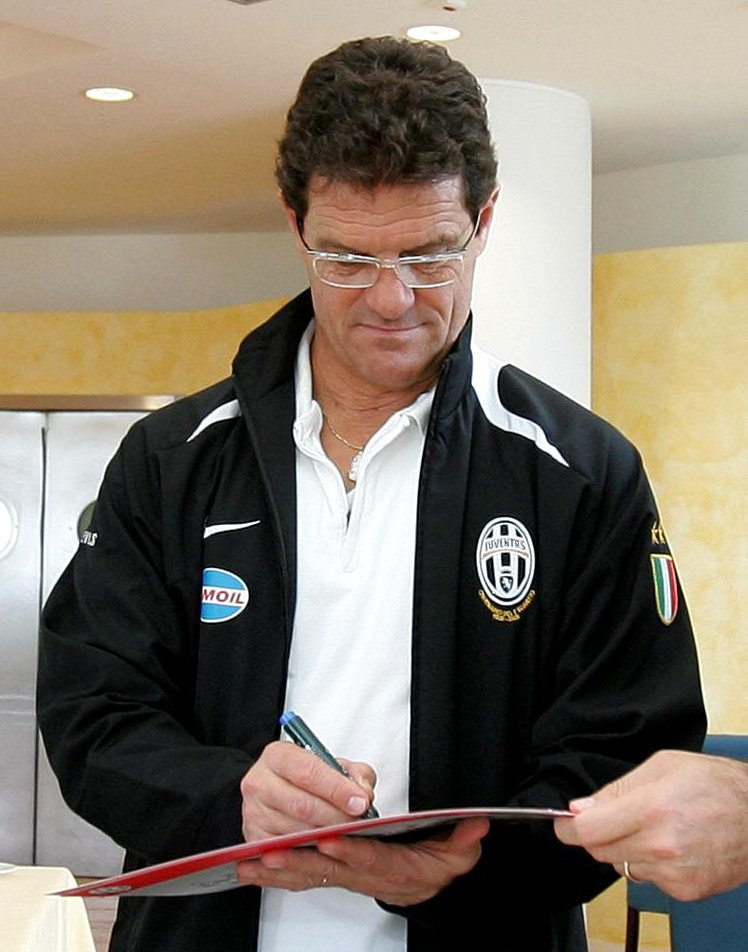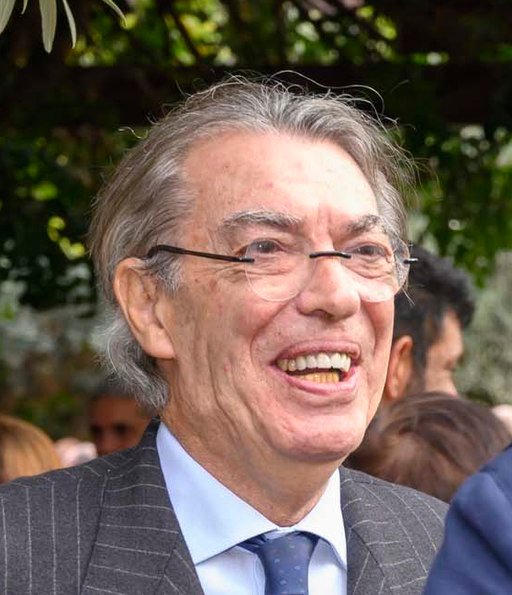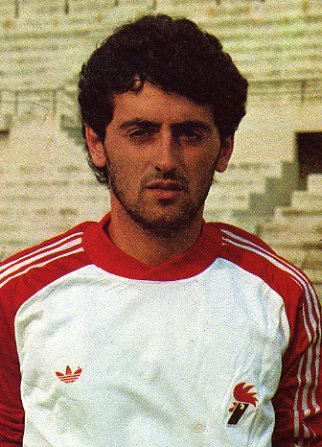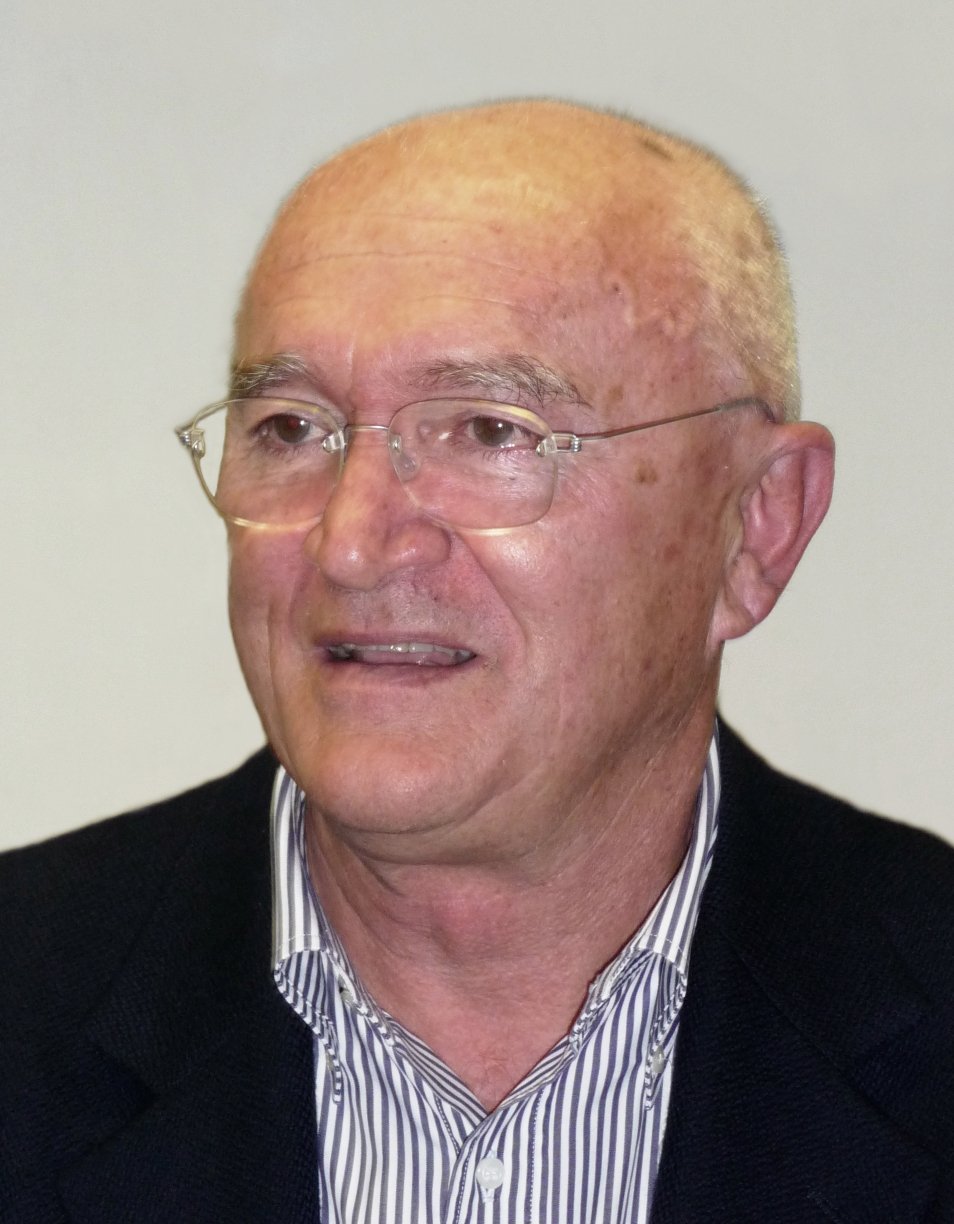
Il conduttore della trasmissione Report, Sigfrido Ranucci. Photo by GeorgeOrwell1984, CC BY-SA 4.0, via Wikimedia Commons
GRAZIE RANUCCI, MA QUESTE COSE, CHI VOLEVA, LE SAPEVA GIA' |
|---|
In quasi tutte le occasioni gli argomenti trattati all'interno della trasmissione di approfondimento giornalistico "Report", ideata e condotta a lungo da Milena Gabanelli e ora nelle mani di Sigfrido Ranucci, sono rimbalzate agli occhi e alle orecchie dell'opinione pubblica come una sorta di verità assoluta.
Altre invece, in realtà una decisa minoranza, i temi scomodi proposti dal team di mamma RAI hanno suscitato l'indignazione di qualche personaggio influente proveniente dal governo o dalla politica in generale, tanto da essere fronteggiati con accese critiche pubbliche.
Nella totalità dei casi tuttavia, l'effetto scaturito dalle oltre due ore dell'appuntamento con Report è stato grossomodo sempre lo stesso: un grande clamore mediatico. Nel bene o nel male, che si ritenessero le inchieste di Ranucci e della sua squadra approfondite e valide, o superficiali e infondate, il giorno dopo, l'argomento finiva su tutti i giornali. Almeno fino a ieri.

Fabio Capello, allenatore della Juventus nel biennio 2004-2005. Public domain image
Come abbiamo imparato da piccoli, ogni regola ha la sua eccezione, e all'alba del 18 aprile 2023, i fatti narrati all'interno della puntata del giorno precedente da una delle trasmissioni di punta della TV di Stato, nonché le parole ascoltate dalla viva voce dei protagonisti dell'epoca, non hanno interessato pressoché nessuno. Peccato, perché da un punto di vista di ricerca della verità, risultano potenzialmente in grado di riscrivere del tutto un'importante fetta della storia sportiva italiana.
E quale tema potrebbe assumere un ruolo così importante se non le vicende che hanno trasformato globalmente il nostro calcio, ormai diciassette anni fa, in seguito alla vicenda di Calciopoli? Per chi non sapesse di cosa stiamo parlando, lo scandalo ribattezzato dalla stampa dell'epoca come "Calciopoli" si riferisce ad una serie di indagini che portarono alla luce rapporti a dir poco controversi tra numerose società calcistiche e il mondo arbitrale.
A pagare il prezzo più alto da quell'inchiesta fu la dirigenza della Juventus, radiata a vita dal mondo del calcio, nonché l'intera società bianconera, ritenuta organizzatrice di un sistema fraudolento in grado di condizionare interi campionati e per questo motivo retrocessa d'ufficio in Serie B e privata degli ultimi due scudetti conquistati sul campo.
Ma il sistema attribuito a Moggi e alla Juventus fu davvero così grave e sleale come la storia ce lo ha venduto per tutti questi anni? E soprattutto, è corretto affermare che tutte le altre protagoniste della vicenda siano state punite in maniera equa rispetto a quanto combinato? Le risposte sono a disposizione di tutti da diciassette anni, e quanto emerso nella puntata di Report può forse rappresentare una novità per i più giovani o i più "distratti", ma non certo per chi di quell'inchiesta fu ad ogni livello "vittima".
Per chi volesse vederci più chiaro, ecco la ricostruzione dei fatti, certificata anche dai giornalisti di Report.

L'allora presidente dell'Inter, Massimo Moratti. Foto da Barocco Digitale, CC BY-SA 4.0, via Wikimedia Commons
Calciopoli nasce "concettualmente" il 5 maggio del 2002, giorno in cui, all'Olimpico di Roma, l'Inter perde all'ultima giornata uno scudetto che sembrava già in tasca, soccombendo 4-2 in casa della Lazio. L'allora proprietario del club nerazzurro, Massimo Moratti, decide così di convocare a casa sua il designatore arbitrale, Paolo Bergamo, per lamentarsi di presunti arbitraggi negativi ricevuti dalla propria squadra.
Il petroliere era stato messo in stato d'allerta già da qualche tempo dal suo collaboratore numero uno, Giacinto Facchetti: egli sosteneva di aver ricevuto delle importanti confessioni da parte dell'arbitro Nucini, secondo le quali il Direttore Generale della Juventus, Luciano Moggi, grazie alla sua influenza sui designatori arbitrali, decideva la carriera dei vari direttori di gara, in base al trattamento riservato alla Juventus.
Il patron del club nerazzurro affida allora a Giuliano Tavaroli, capo della security Pirelli, il compito di verificare la veridicità della storia, e lo stesso investigatore redige un'informativa che consegna ai carabinieri. Il tutto finisce sul tavolo del Pubblico Ministero della Procura di Milano, Ilda Bocassini, che non rilevando elementi validi per aprire un fascicolo di inchiesta, archivia il tutto piuttosto in fretta.
Ma Moratti non è soddisfatto e insiste affinché Tavaroli continui con le sue indagini, fatte di intercettazioni illegali e pedinamenti nei confronti di Moggi, Bergamo ed altri personaggi del calcio italiano (cosa che ha portato successivamente ad una sentenza di risarcimento danni da parte dell'Inter alle vittime).

L'ex dirigente della Roma, Franco Baldini. Public domain image
La cosa, con straordinaria analogia rispetto agli ultimi fatti accaduti, arriva alle orecchie dei Pubblici Ministeri della Procura di Napoli, desiderosi di una sorta di vendetta sul sistema calcistico e nei confronti dell'allora presidente federale Franco Carraro, reo di aver spedito la squadra in Serie B in seguito al fallimento societario.
A far da occhi e orecchie per la procura, con il fine di realizzare il progetto del cosiddetto "ribaltone" (detto in parole povere, mandare in alto chi non vinceva mai come Inter e Roma e spedire all'inferno le più forti) ci pensa l'allora direttore generale della Roma, Franco Baldini, che intraprende una serie infinita di colloqui con i carabinieri della capitale.
Si arriva così a maggio del 2006, quando la Procura di Napoli iscrive nel registro degli indagati oltre a Moggi e Bergamo anche il presidente della FIGC, Franco Carraro, mentre il neonato governo Prodi insiste con il CONI per commissariare la federazione e per spedire a capo della stessa proprio un ex dirigente dell'Inter, Guido Rossi, destinato dopo un anno a diventare presidente della Telecom, società appartenente al vice-presidente nerazzurro, Marco Tronchetti Provera.

L'ex designatore arbitrale, Paolo Bergamo. Foto da Lucarelli, CC BY-SA 3.0, via Wikimedia Commons
Dopo le penalizzazioni di Juventus e Milan, coinvolte seppur a livello differente nell'indagine, lo scudetto 2006 viene revocato ai bianconeri e assegnato dalla commissione di saggi istituita da Guido Rossi proprio all'Inter, che quel campionato aveva concluso al terzo posto, quindici punti dietro alla Juventus.
Ma quali erano le prove che avrebbero certificato il sistema fraudolento messo in piedi da Moggi e come sono state acquisite? La principale viene ritenuta quella delle schede SIM svizzere, distribuite dal dirigente della Juventus ai designatori arbitrali, Bergamo e Pairetto, i cui nominativi degli intestatari sono stati ottenuti tuttavia grazie ad una vera e propria manovra illegale e non tramite rogatorie internazionali, come previsto dalla legge, per di più redigendo un verbale falso che le collocava in territorio italiano.
Perché i personaggi in questione (oltra alla dirigenza bianconera erano compresi i designatori, alcuni arbitri e giornalisti) avrebbero avuto la necessità di comunicare tramite l'uso di SIM svizzere, di conseguenza non intercettabili? Secondo il tribunale di Napoli, come confermato anche dalla Cassazione, lo stratagemma serviva a Moggi per gestire una sorta di organizzazione, volta in qualche modo ad ottenere vantaggi personali e a favorire la Juventus da un punti di vista sportivo.
Tuttavia, degli undici arbitri finiti nel registro degli indagati, ne vengono assolti dieci, ovvero tutti tranne l'arbitro romano Massimo De Santis, ritenuto un sodale di Moggi, ma riconosciuto colpevole di aver in qualche modo influito sul risultato di due partite non inerenti la Juventus, Lecce-Parma e Fiorentina-Bologna. Al termine del processo penale non esistono prove di ulteriori partite aggiustate, di ammonizioni pilotate o di altri condizionamenti arbitrali e i campionati in questione, 2004/05 e 2005/06 vengono certificati dal tribunale come regolari.

Giacinto Facchetti, Photo by Christophe95, CC BY-SA 3.0, attraverso Wikimedia Commons
Tutto molto strano, ma ad accendere una nuova luce sull'accaduto ci pensa il Pubblico Ministero dell'epoca, Giandomenico Lepore: l'inchiesta, iniziata (tanto per cambiare) sulla Juventus, stava per trasferirsi ad almeno altre dieci squadre di Serie A (tra le quali, in primis, l'Inter) ma una manina provvidenziale fece in modo che le intercettazioni fino a quel momento raccolte finissero al settimanale "L'Espresso" e che tutto di conseguenza si fermasse.
A finire nella bufera, volutamente o meno, è così solo la società bianconera anche se, come si scoprirà dalle informative uscite dalla FIGC qualche anno dopo, e come confermato dallo stesso Paolo Bergamo a Report, a chiamare i designatori arbitrali per far pressione sugli arbitraggi erano un po' tutte le squadre.
Alcune intercettazioni risultano clamorose, come quella tra De Santis e Bergamo dopo Juventus-Inter (terminata con la vittoria per 1-0 dei nerazzurri), nella quale l'arbitro si vanta di aver fatto il suo dovere, con un arbitraggio a favore dei nerazzurri, o quella tra lo stesso arbitro e un dirigente del Milan, con tanto di risate divertite del primo per aver mandato in silenzio stampa di protesta la Juventus.
E che dire del campionato precedente, con l'intercettazione del presidente Carraro, prodigo nel raccomandare al designatore che non venisse favorita in alcun modo la Juventus, rafforzata dall'immediata telefonata di Bergamo all'arbitro designato Rodomonti ("se hai un dubbio favorisci chi sta dietro, ovvero l'Inter")? Per la cronaca, quella partita terminò 2-2, anche grazie alla mancata espulsione, sul risultato di 2-0 per la Juventus, del portiere nerazzurro Toldo.
Nel sistema che riguarda l'Inter è coinvolto anche l'ex presidente Giacinto Facchetti, che in un colloquio telefonico con Bergamo chiede esplicitamente che l'arbitro Bertini, designato per la successiva partita di Coppa Italia, ritocchi la statistica delle vittorie nerazzurre, ricevendo ampie rassicurazioni dal designatore ("non ti preoccupare, è un ragazzo intelligente, ha capito come muoversi...")
Bergamo non chiama Bertini, ma lo stesso ex direttore di gara confermò al processo come ad effettuare le stesse pressioni, addirittura dentro lo spogliatoio e poco prima della partita, fu lo stesso Facchetti. Insomma, una bella differenza rispetto alla presunta verità raccontata negli anni e trasformata ormai in dogma dai vari media e dalle annuali interviste con i Bonolis e La Russa di turno.
.jpg)
L'allora Amministratore Delegato del Milan, Adriano Galliani. Foto da Save the Dream from Doha, Qatar, CC BY 2.0, attraverso Wikimedia Commons
E le altre grandi? Il Milan, che nei due campionati sotto esame poteva contare sul presidente Silvio Berlusconi, investito del ruolo di Presidente del Consiglio dei Ministri, e sull'Amministratore Delegato Adriano Galliani, presidente della Lega Calcio, non si faceva scrupoli tramite il suo addetto agli arbitri, Leonardo Meani, a fare pressione non solo con i designatori, ma anche direttamente con gli ufficiali di gara.
Tocca a Meani organizzare un incontro segreto tra Galliani e quello che viene considerato il miglior arbitro italiano, Pierluigi Collina, così come è sempre lui a far recapitare sul tavolo di Gianni Letta, uomo del governo Berlusconi, la richiesta di un favore per la società di energie rinnovabili appartenente ad un altro arbitro, Gianluca Paparesta, guarda caso terminato nell'occhio del ciclone per diversi arbitraggi smaccatamente favorevoli ai rossoneri.
Ma non solo, perché i tanto pilotati sorteggi arbitrali, altra priva regina del processo (con filmati tuttavia misteriosamente spariti e sostituiti con fotomontaggi taroccati ad arte) sembravano, da quanto emerge dalle intercettazioni, pane quotidiano per Meani e il Milan.
Ce ne sarebbe anche per Lazio e Fiorentina, le cui sorti finirono a cuore del presidente federale Carraro, pronto a raccomandare a Bergamo un occhio di riguardo per le due, ma il finale dell'articolo lo riservo per il lavoro del procuratore federale Stefano Palazzi, che nel 2011 sostenne, in relazione ai medesimi fatti, la tesi dell'illecito sportivo dell'Inter e della condotta censurabile di Facchetti, nonché tuttavia l'impossibilità di intervenire per avvenuta prescrizione.
Report avrebbe forse potuto affondare il colpo ancora di più (esistono ad esempio intercettazioni dove Meani chiede esplicitamente che i guardalinee tenessero giù la bandierina sui possibili fuorigioco del Milan), magari approfondendo una delle possibili chiavi di lettura (solo accennata) di quel procedimento assurdo, l'accordo commerciale in essere tra una parte del mondo bianconero e la galassia Moratti, finalizzato a spodestare Moggi e Giraudo (legati alla famiglia Agnelli) per favorire l'ascesa degli Elkann.
Come diceva Karl Marx, "la storia si ripete sempre due volte, la prima in tragedia, la seconda in farsa". Mentre scrivo questo pezzo è in corso il dibattimento presso il Consiglio di Garanzia del CONI sull'assurda penalizzazione inflitta alla Juventus per il caso plusvalenze. Ne parleremo domani, quando scopriremo se il filosofo tedesco aveva ragione, oppure no.
Statemi bene, alla prossima!
📢 ATTENZIONE!
Se non l'hai ancora fatto, prendi in considerazione la possibilità di partecipare alla sesta settimana del mio contest, THE ITALYGAME CUP!

Immagine di benzoix su Freepik - Free to use
Logo Italygame Cup, realizzato grazie all'IA di craiyon.com
Logo Italygame Witness, proprietà @italygame
Grazie alla sponsorizzazione di @italygame sono in palio dei ricchi premi per i primi classificati e per i vincitori settimanali. C'è tempo per partecipare alla quinta settimana del gioco fino a sabato 22 aprile, ti aspetto!
.jpg)
I'm part of ITALYGAME Team
together with:
@girolamomarotta, @sardrt, @mikitaly, @mad-runner, @famigliacurione
.jpg)
 ENGLISH VERSION
ENGLISH VERSION
Translated with DeepL.com
THANKS RANUCCI, BUT THESE THINGS, THE WILLING, ALREADY KNEW THEM |
|---|
On almost every occasion, the topics dealt with within the in-depth journalistic programme 'Report', conceived and conducted for a long time by Milena Gabanelli and now in the hands of Sigfrido Ranucci, have bounced back to the eyes and ears of public opinion as some sort of absolute truth.
Others, actually a decided minority, the uncomfortable topics proposed by the team of mamma RAI have aroused the indignation of some influential personage from the government or politics in general, so much so that they have been met with heated public criticism.
In all cases, however, the effect of the more than two-hour appointment with Report was more or less always the same: a great media uproar. For better or worse, whether one considered the investigations by Ranucci and his team** to be thorough and valid, or superficial and unfounded, the next day, the topic ended up in all the newspapers. At least until yesterday.

Fabio Capello, Juventus coach in 2004-2005. Public domain image
As we learnt as children, every rule has its exception, and at dawn on 18 April 2023, the facts recounted in the previous day's episode of one of the state TV's flagship programmes, as well as the words heard from the viva voce of the protagonists of the time, interested almost no one. This is a pity, because from a truth-seeking point of view, they have the potential to completely rewrite an important slice of Italian sporting history.
And what topic could play such an important role if not the events that transformed our football globally, now seventeen years ago, following the Calciopoli affair? For those who don't know what we are talking about, the scandal dubbed 'Calciopoli' by the press of the time refers to a series of investigations that brought to light controversial relations between numerous football clubs and the refereeing world, to say the least.
Paying the highest price from that investigation was the management of the Juventus, who was struck off for life from the world of football, as well as the entire Bianconeri club, considered to be the organiser of a fraudulent system capable of conditioning entire championships and for this reason relegated ex officio to the Serie B and deprived of the last two championships won on the field.
But was the system attributed to Moggi and Juventus really as serious and unfair as history has sold it to us for all these years? And above all, is it correct to say that all the other protagonists in the affair were punished fairly with respect to what they did? The answers have been available to everyone for seventeen years, and what emerged in the episode of Report may perhaps be news to the younger or the more 'distracted', but certainly not to those who were at every level 'victims' of that investigation.
For those who want to see more clearly, here is the reconstruction of the facts, also certified by the journalists of Report.

The former president of Inter, Massimo Moratti. Photo by Barocco Digitale, CC BY-SA 4.0, via Wikimedia Commons
Calciopoli was 'conceptually' born on 5 May 2002, the day when, at the Olimpico in Rome, the Inter team lost on the last day of the championship that seemed already in the bag, losing 4-2 to the Lazio. The then owner of the Nerazzurri club, Massimo Moratti, thus decided to summon the referee designator, Paolo Bergamo, to his home to complain about alleged negative refereeing received by his team.
The oilman had already been put on alert for some time by his number one collaborator, Giacinto Facchetti: he claimed to have received some important confessions from the referee Nucini, according to which the General Manager of Juventus, Luciano Moggi, thanks to his influence on the referee designators, decided the careers of the various match directors, based on the treatment given to Juventus.
The owner of the Nerazzurri club then entrusted Giuliano Tavaroli, head of Pirelli security, with the task of verifying the veracity of the story, and the same investigator drew up a report which he handed over to the Carabinieri. Everything ended up on the table of the Public Prosecutor of the Milan Public Prosecutor's Office, Ilda Bocassini, who, finding no valid elements to open an investigation file, filed the whole thing rather quickly.
But Moratti is not satisfied and insists that Tavaroli continue with his investigations, made up of illegal wiretapping and stalking of Moggi, Bergamo and other figures in Italian football (which subsequently led to a sentence of damages by Inter to the victims).

Former Roma manager Franco Baldini. Public domain image
The thing, with extraordinary analogy to the latest events, reached the ears of the Public Prosecutors of Naples, eager for a sort of revenge on the football system and against the then federal president Franco Carraro, guilty of having sent the team to Serie B following the company's bankruptcy.
Acting as eyes and ears for the public prosecutor's office, with the aim of carrying out the so-called 'ribaltone' project (put simply, to send those who never won like Inter and Roma to the top and send the strongest ones to hell) was the then general manager of Roma, Franco Baldini, who undertook an endless series of interviews with the capital's carabinieri.
This led to May 2006, when the Naples Public Prosecutor's Office placed the president of the FIGC, Franco Carraro, in addition to Moggi and Bergamo, on the register of suspects, while the new-born Prodi government insisted with the CONI to commission the federation and to send as its head a former Inter executive, Guido Rossi, destined after a year to become president of Telecom, a company owned by the Nerazzurri vice-president, Marco Tronchetti Provera.

L'ex designatore arbitrale, Paolo Bergamo. Photo by Lucarelli, CC BY-SA 3.0, via Wikimedia Commons
After the penalisations of Juventus and Milan, involved albeit at different levels in the investigation, the 2006 Scudetto was revoked from the Bianconeri and awarded by the commission of wise men set up by Guido Rossi to Inter, who had finished third in that championship, fifteen points behind Juventus.
But what was the evidence that would certify the fraudulent system set up by Moggi and how was it acquired? The main one is believed to be that of the Swiss SIM cards, distributed by the Juventus manager to the referee designators, Bergamo and Pairetto, whose names of the holders were obtained, however, thanks to a real illegal manoeuvre and not through international rogatory letters, as required by law, moreover by drawing up a false report placing them on Italian territory.
Why would the people in question (in addition to the Juventus management, they included the designators, some referees and journalists) need to communicate through the use of Swiss SIM cards, which were therefore not intercepted? According to the Court of Naples, as also confirmed by the Court of Cassation, the stratagem served Moggi to manage a sort of organisation, aimed in some way at obtaining personal advantages and favouring Juventus from a sporting point of view.
However, of the eleven referees who ended up in the register of those under investigation, ten were acquitted, i.e. all except the Roman referee Massimo De Santis, believed to be an associate of Moggi, but found guilty of having somehow influenced the outcome of two matches not related to Juventus, Lecce-Parma and Fiorentina-Bologna. At the end of the criminal trial there is no evidence of further match fixing, piloted cautions or other refereeing influence and the championships in question, 2004/05 and 2005/06 are certified by the court as regular.

Giacinto Facchetti, Photo by Christophe95, CC BY-SA 3.0, via Wikimedia Commons
It was all very strange, but the Public Prosecutor of the time, Giandomenico Lepore, shed new light on the incident: the investigation, which had begun (for a change) on the Juventus, was about to be transferred to at least ten other teams in the Serie A (including, first and foremost, the Inter), but a providential hand made sure that the interceptions collected up to that time ended up at the weekly magazine "L'Espresso" and that everything consequently stopped.
To end up in the blizzard, intentionally or not, it is thus only the Juventus club even if, as it will be discovered from the information released by the FIGC a few years later, and as confirmed by the same Paolo Bergamo in Report, to call the referee designators to put pressure on the referees were a bit 'all the teams.
Some interceptions are clamorous, such as the one between De Santis and Bergamo after Juventus-Inter (which ended with a 1-0 victory for the Nerazzurri), in which the referee boasts of having done his duty, with a refereeing in favour of the Nerazzurri, or the one between the same referee and a manager of the Milan, complete with amused laughter of the former for having sent the Juventus into a press silence in protest.
And what can we say about the previous championship, with the interception of the president Carraro, prodigal in recommending to the designator that the Juventus should not be favoured in any way, reinforced by the immediate telephone call of Bergamo to the designated referee Rodomonti ("if you have a doubt, favour whoever is behind, that is the Inter")? For the record, that match ended 2-2, also thanks to the non-expulsion, at 2-0 to Juventus, of the Nerazzurri goalkeeper Toldo.
In the system involving the Inter was also involved the former president Giacinto Facchetti, who in a telephone conversation with Bergamo explicitly asked that the referee Bertini, designated for the following Coppa Italia match, correct the statistics of the Nerazzurri victories, receiving ample reassurances from the designator ("don't worry, he's a smart guy, he's understood how to move...")
Bergamo did not call Bertini, but the same former match director confirmed at the trial how it was the same Facchetti who put the same pressure, even inside the locker room and just before the match. In short, quite a difference from the alleged truth told over the years and turned into dogma by the various media and the annual interviews with the Bonolis and La Russa on duty.
.jpg)
The then CEO of Milan, Adriano Galliani. Photo by Save the Dream from Doha, Qatar, CC BY 2.0, attraverso Wikimedia Commons
And the other big ones? The Milan, which in the two championships under scrutiny could count on the president Silvio Berlusconi, invested with the role of Prime Minister, and on the CEO Adriano Galliani, president of the Lega Calcio, had no qualms through his referee attaché, Leonardo Meani, to apply pressure not only with the designators, but also directly with the match officials.
It was the turn of Meani to organise a secret meeting between Galliani and what is considered the best Italian referee, Pierluigi Collina, just as it was also he who had the request for a favour for the renewable energy company owned by another referee, Gianluca Paparesta, who, as chance would have it, ended up in the eye of the storm for several referees blatantly in favour of the Rossoneri, delivered to the table of Gianni Letta, a man in the Berlusconi government.
But that's not all, because the much-piloted referee draws, another prime motive of the trial (with footage, however, mysteriously disappeared and replaced with artfully doctored photomontages) seemed, from what emerges from the interceptions, to be daily bread for Meani and the Milan.
There would also be some for Lazio and Fiorentina, whose fate ended up at the heart of the federal president Carraro, ready to recommend to Bergamo a special eye for the two, but the end of the article is reserved for the work of the federal prosecutor Stefano Palazzi, who in 2011 supported, in relation to the same facts, the thesis of the sports offence of Inter and of the censurable conduct of Facchetti, as well as, however, the impossibility of intervening due to the statute of limitations.
Report could perhaps have sunk the blow even deeper (there are, for example, interceptions where Meani explicitly asks that the linesmen hold down the flag on possible offsides by Milan), perhaps delving into one of the possible keys to interpretation (only hinted at) of that absurd procedure, the commercial agreement in place between part of the Juventus world and the Moratti galaxy, aimed at ousting Moggi and Giraudo (linked to the Agnelli family) to favour the rise of the Elkann.
As Karl Marx said, 'history always repeats itself twice, the first time in tragedy, the second time in farce'. As I write this piece, a hearing is underway at the CONI Guarantee Council on the absurd penalty imposed on Juventus for the capital gains case. We will talk about it tomorrow, when we will find out whether the German philosopher was right or not.
Stay safe, see you next time!
📢 ATTENTION, PLEASE!
If you haven't already done so, consider entering the fifth week of my contest, THE ITALYGAME CUP!

Immagine di benzoix su Freepik - Free to use
Logo Italygame Cup, realizzato grazie all'IA di craiyon.com
Logo Italygame Witness, proprietà @italygame
Thanks to the sponsorship of @italygame, rich prizes are up for grabs for the first runners-up and weekly winners. There is time to participate in the fifth week of the game until Saturday, April 15th. I look forward to seeing you!
.jpg)
I'm part of ITALYGAME Team
together with:
@girolamomarotta, @sardrt, @mikitaly, @mad-runner, @famigliacurione


 👉 VOTA PER NOI COME WITNESS👈
👉 VOTA PER NOI COME WITNESS👈